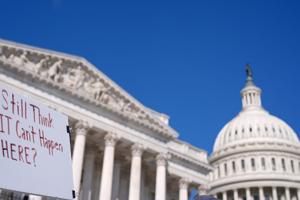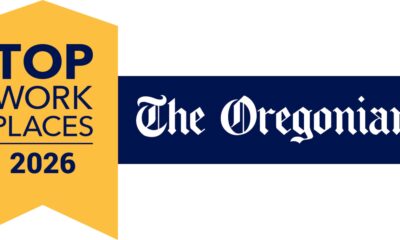Health
New York Leaders Must Unite to Protect Health Care Amid Crisis

The ongoing stalemate in Washington over federal funding threatens the health care system for millions of Americans, particularly those in New York. As political leaders grapple with budgetary issues, the well-being of constituents hangs in the balance. With the potential for premium increases under the Affordable Care Act (ACA) looming on January 1, 2026, urgent action is needed from both Republican and Democratic representatives to ensure health care remains accessible.
The proposed changes could result in an average premium increase of **75%**, impacting **4 million Americans** nationally, including approximately **200,000 New Yorkers**. Many individuals who rely on tax credits to afford health insurance under the ACA are facing severe financial strain. An analysis by the **Kaiser Family Foundation** (KFF) suggests that without these subsidies, average annual premiums would more than double. For instance, a New Yorker earning **$28,000** would see their annual health care costs soar from about **1%** of their income (around **$325**) to nearly **6%** (approximately **$1,562**) if the enhanced tax credits expire.
The Essential Plan, which provides low or no-cost coverage, supports an additional **1.7 million New Yorkers**, including small business owners and self-employed individuals. Losing these subsidies could force many to choose between essential expenses like rent and food or maintaining their health insurance. Once coverage is lost, individuals may forgo preventive care, leading to increased emergency room visits and placing additional burdens on hospitals.
Political dynamics complicate the situation further. Despite the rhetoric from some Republican leaders, a significant number of party supporters favor maintaining health care subsidies. The misinformation surrounding unauthorized immigrants accessing health care is unfounded, as U.S. law prohibits such access to federally subsidized programs.
The recent passage of a bill that included substantial cuts to Medicaid has raised concerns about the future of health care access. More than **16 million Americans** may ultimately lose Medicaid coverage, including **1.5 million New Yorkers**, which could have a ripple effect on state health systems and finances. These cuts are set to affect individuals over a longer timeline, but the impact will be significant and detrimental.
As tensions rise in Washington, it is crucial for the New York delegation, regardless of political affiliation, to prioritize the health care needs of their constituents. The current climate of congressional dysfunction must not dictate the future of health care for millions. Leaders must engage in meaningful negotiations to reform and protect a system that is vital for public health.
In conclusion, the stakes are high. The health care landscape in New York and across the nation demands immediate attention and collaborative efforts from politicians. The focus should be on solutions that ensure health care remains accessible and affordable, rather than on political posturing that endangers the well-being of millions.
-

 Science1 month ago
Science1 month agoNostradamus’ 2026 Predictions: Star Death and Dark Events Loom
-

 Technology2 months ago
Technology2 months agoOpenAI to Implement Age Verification for ChatGPT by December 2025
-

 Technology7 months ago
Technology7 months agoDiscover the Top 10 Calorie Counting Apps of 2025
-

 Health5 months ago
Health5 months agoBella Hadid Shares Health Update After Treatment for Lyme Disease
-

 Health5 months ago
Health5 months agoAnalysts Project Stronger Growth for Apple’s iPhone 17 Lineup
-

 Technology5 months ago
Technology5 months agoElectric Moto Influencer Surronster Arrested in Tijuana
-

 Education5 months ago
Education5 months agoHarvard Secures Court Victory Over Federal Funding Cuts
-

 Health5 months ago
Health5 months agoErin Bates Shares Recovery Update Following Sepsis Complications
-

 Technology6 months ago
Technology6 months agoDiscover How to Reverse Image Search Using ChatGPT Effortlessly
-

 Technology7 months ago
Technology7 months agoMeta Initiates $60B AI Data Center Expansion, Starting in Ohio
-

 Science4 months ago
Science4 months agoStarship V3 Set for 2026 Launch After Successful Final Test of Version 2
-

 Technology7 months ago
Technology7 months agoRecovering a Suspended TikTok Account: A Step-by-Step Guide





















